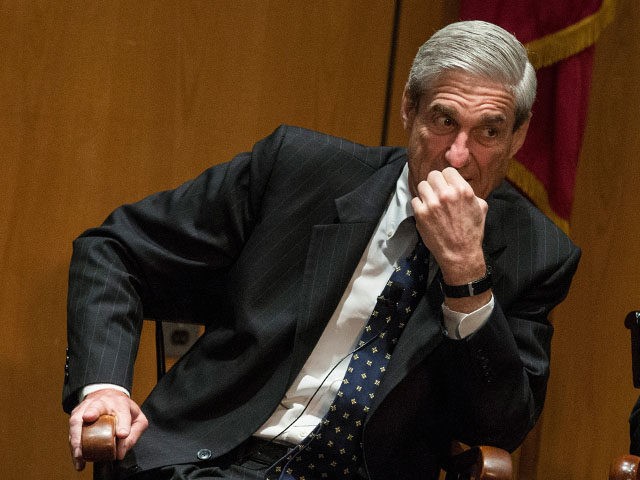A federal grand jury in Washington, DC, under the authority of Special Counsel Robert Mueller, approved charges Friday against 13 Russian nationals for offenses related to the 2016 U.S. Presidential election.
The defendants are all alleged to be part of the “Internet Research Agency,” a company the indictment alleges is based in St. Petersburg, Russia, and operates through a number of front organizations with the aim of influencing American elections.
Deputy Attorney General Rod Rosenstein, who oversees Mueller’s special counsel investigation, announced the indictment at the main Department of Justice building in Washington, DC.
“There is no allegation in this indictment that any American was a knowing participant in this illegal activity,” Rosenstein said. “There is no allegation in the indictment that the charged conduct altered the outcome of the 2016 election.”
Special Counsel’s Office spokesman Peter Carr described the indictment as covering “13 Russian nationals and three Russian entities accused of violating U.S. criminal laws in order to interfere with U.S. elections and political processes.”
The group is alleged to have spent years, back to at least 2014, building a social media following of hundreds of thousands by playing off of existing divisions and sympathies in the American political landscape. When 2016 rolled around, the groups operatives are alleged to have disparaged Hillary Clinton, Ted Cruz, and Marco Rubio, and used its influence to support Donald Trump and Bernie Sanders.
As Rosenstein explained, the goal of the alleged conspiracy is not as simple as supporting one candidate. The conspirators are alleged to have held rallies for and against president-elect Donald Trump on the same day in November 2016.
“After the election, the defendants allegedly staged rallies to support the president-elect, while simultaneously staging rallies to protest his election,” Rosenstein told reporters. “For example, the defendant organized one rally to support the president-elect and another rally to oppose him, both in New York, on the same day.”
The indictment strongly implies links to the Kremlin. Over $1 million in rubles is alleged to have been funneled into the conspiracy through sources like “Concord Catering,” a company with significant contracts with the Russian government.
The indictment contains no explicit allegation of collusion with Donald Trump’s or any other 2016 campaign. Most Americans, including at least one Trump campaign official, who communicated with the Russian conspirators are described as “unwitting.” As Rosenstein explained:
The Russians also recruited and paid real Americans to engage in political activities, promote political campaigns, and stage political rallies. The defendants and their co-conspirators pretended to be grassroots activists. According to the indictment, the Americans did not know that they were communicating with Russians.
The 13 are alleged to have co-opted the identities of several Americans to carry out their plot, to have organized rallies in the United States under the pretense of being American grassroots groups.
Charges against the 13 defendants, some of whom are alleged to have traveled to the United States in the furtherance of their scheme, but none of whom are confirmed to be in the country now, include conspiracy to defraud the United States, conspiracy to commit bank fraud and wire fraud, and aggravated identity theft.
The exact role of each of the thirteen named defendants varies considerable, but one potential “boss” of this operation was Yevgeniy Prigozhin, who the Internet Research Agency is alleged to have paid someone to stand outside the White House in May, 2016 with a sign wishing him a happy birthday, presumably to demonstrate the power they were building in the United States.
Asked by a reporter if the DOJ had reached out to the Russian government for assistance in bringing the defendants to justice, Rosenstein said, “”No communications with the Russians about this. We’ll follow the ordinary process of seeking cooperation and extradition.”

COMMENTS
Please let us know if you're having issues with commenting.